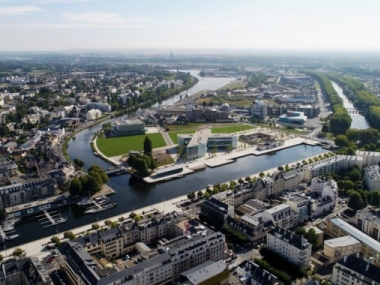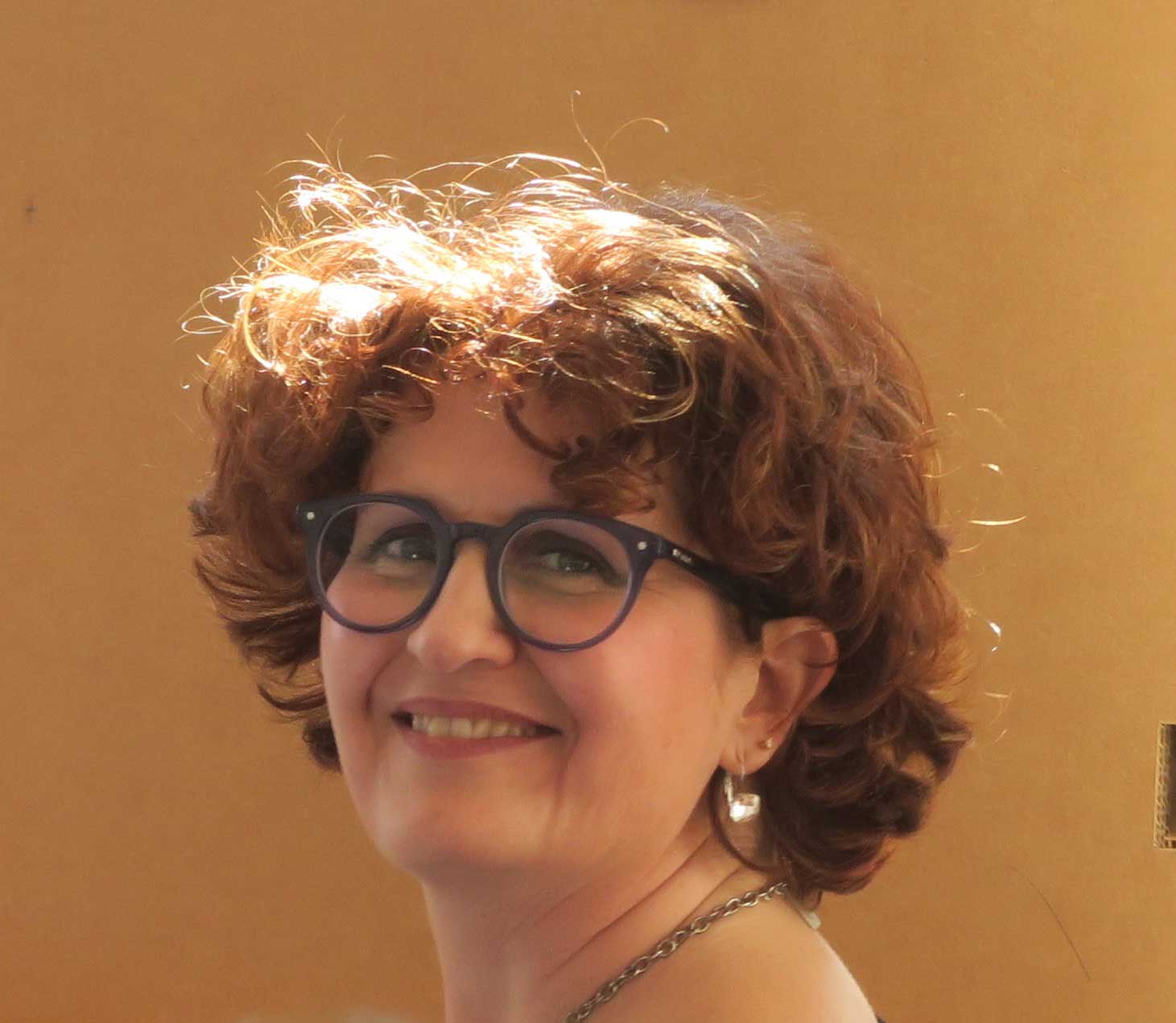Transnational Meeting in Caen
Edited on
13 May 2019The City of Caen, in the French region of Normandy, was the setting for the Network’s Transnational Meeting that took place on 2-3 April 2019. Partners and stakeholders from each network city participated in the two-day workshop, which was held at Le Pavillon. This location is considered a place dedicated to the understanding of architecture and city-planning in general, and more especially of the Caen Peninsula redevelopment project. It is also the headquarters of the Caen ULG meetings.

In addition to an in-depth look into the case study of Caen, supported by a dedicated field visit of the Peninsula area, the focus of the workshop was to transfer experiences and suggestions to support the city of Caen and its ULG in the development of the Peninsula project.
Caen case study – The Peninsula Project
Caen is a medium city located 15kms away from the English Channel and it developed towards the sea. In 1857 a canal was built to enable water navigation permanently and the small hinterland, in between the canal and river Orne, became the so-called “Peninsula”, dedicated to port activities. Time has passed and port activities have declined, leaving the area unused and buildings abandoned. In the meantime, the city needs to develop and the Peninsula is the best opportunity to do so. Nowadays it is a territory in transition from its industrial and harbour past towards a new district. The ULG chose two buildings to be reactivated: the Tunnel and the Barrels.
The Tunnel will accommodate artistic creation organisations and artistic communities. It will become a centre for shared and multi-disciplinary workspaces, which can include art exhibitions, a community workshop and introductory art courses for the public.
The Barrels will be considered the main gate to the park and will be dedicated to urban community gardens: training activities, grow local products, direct sale, apiaries, henhouses... All this will constitute the Urban Farm project of the Peninsula. The two projects (the Tunnel and the Barrels) are tightly linked and will bring footfall to each other.
The Urban Farm project will showcase city policy towards green urban agriculture and aims at gathering people from all backgrounds in a single place: city centre and city districts inhabitants, local producers, farmers, university researchers, environmental and gardening associations, etc. Since the Urban Farm would be located on polluted soils, soilless productions of fruits and vegetables would be compulsory.
The project would also be a selling platform for local producers (AMAP) and a storage place for compost gathered in the whole city. Compost would be used on site for soilless cultures and handled to any citizen/association wishing to have some for its own gardening. It will be “the place to be…green”!
The city of Caen hopes to benefit from the expertise of the city of Rome and partner cities on the implementation of urban agriculture/gardening projects, which will provide an efficient working method to create the home of sustainable food in Caen. The municipality supports, facilitates and coordinates the process to guide civic initiative and stimulate stakeholders.
How can the Peninsula project succeed? Here are some of the key factors for the success of the Peninsula project:
- Quality actionplanning programme for city decision makers,
- Limited investment costs while ensuring the renewal of the former industrial plot,
- Partnership with project managers (private, associative, etc) to ensure that it remains a citizendriven project,
- Shared governance between municipality, professionals and associations,
- ULG members’ involvement throughout the project’s duration.
Field visit to the Peninsula area
The first site visited was Le Dôme, a research centre dedicated to technological innovation. It includes a "Fablab" granting access to “traditional” tools and machines with digital control. The association owning the building is part of the network of scientific, technical and industrial culture centres in France dedicated to scientific mediation for the general audience. A ULG member presented the "Farmbot", a machine at its experimental stage that aims to help market gardening. The Dôme offers a stunning view over the Barrels Urban Farm project area. The visit continued with an informal chat with the “Toutenvélo” creators , a company dedicated to organic waste collection by bicycle from the city centre restaurants and inhabitants for the production of compost which will then be available to its contributors and to community gardens. The two-year experimentation, supported by the Regional Council, is the first tangible and operational activity on the plot dedicated to the RU:RBAN project (the Barrels). After the field visit all partners were fully informed about the Barrels project of the City of Caen, in which the partner is concentrating for the transfer journey.
The good practice developed by Rome is totally relevant to the territory of Caen because it matches with the political will of the local administration to implement an agricultural strategy, with a participatory approach and a social inclusion component.
The first day of the workshop concluded with the Caen ULG members sharing their stories with the partners:
- Saint Jean Eudes Community Garden. The community centre manager presented the garden that was created as a result of successful cooking workshops held with local residents, including parents from the nearby primary school close to the community centre. Gardening is a way to break off isolation and create social bonds. The exchange of good practices with other ULGs is the most effective way to grow social enrichment.
- Ms Marinette Desseroit and her organic garden. The last market gardener within the city boundaries, she is a professional gardener applying a 0-pesticide policy to her gardening method since she is cultivating land in a sensitive natural area. For her, the RU:RBAN network creates a synergy that helps gardeners with different approaches to meet and exchange experiences.
- ATIPIC “0 unemployment” gardening association in the outskirts of Caen. The initiative was presented by the coordinator. Their objective is to offer a job opportunity in agriculture to unemployed citizens and they have already created 12 jobs on a 7ha permaculture land.
New ways and motivations to grow vegetables to be learned from other EU cities, this is what Caen ULG members are really interested in. They used to be known as the last farmers in Caen and now, as citizens, they contribute to facilitate access to healthy food for all, doing so in an original manner. The more know-how, motivation and demand for healthy food, the better for all citizens.
After a very intense first day, the workshop continued with the second day dedicated to the transferring of the project’s three elements: Capacity Building, Vocational Training and Governance. Following are the outcomes of the discussions among the partners:
Capacity Building - The direct involvement of the ULG members is considered to be critical for the success of the transfer efforts. Local activities should be shared with associations and citizens to develop a successful transfer project. It was interesting to appreciate how different cities are planning to transfer Rome’s good practice into their local contexts, which confirms the importance of being flexible and considering local contexts when aiming to more resilient cities. The City of Caen is bringing together many different initiatives in the fields of urban planning, architecture, urban gardening, farming and social economy to contribute to the greater goal of a more sustainable city.
Vocational training – how to become a gardeniser? But, most of all, what is a gardeniser? It is a garden organizer…. The methodology of learning through joint resolution to different challenges ensured engagement from all the participants to the training session. Added value to this session was the focus on soft skills of future gardenisers, as well as the broad sociological context of urban gardens. All the participants agreed, however, that the concept of urban garden as a tool for social innovation and social change needs to be reinforced.
Governance – The aspect on which all partners agreed is that ULG members of each city ought to work together to contribute to the drafting of their local regulation. Also, fundamental is the involvement of as many stakeholders as possible in this task as the regulation should be a product of an extended and broad consultation among all stakeholders. The question emerging is: what should be the role of the local administrations? That of facilitating citizens’ initiatives that can be carried out in a self-organized manner. The greater the capacity of the citizenship to organize themselves, the lesser the need for local administrations to intervene. Local regulation should be steered in this direction and after setting the baseline with the Transnational Meetings in Rome (February 2019) and Caen, the partner cities are now ready to focus on the particulars of their future regulation, such as procedures, selection of eligible associations etc.
 Submitted by Patricia Hernandez on
Submitted by Patricia Hernandez on
